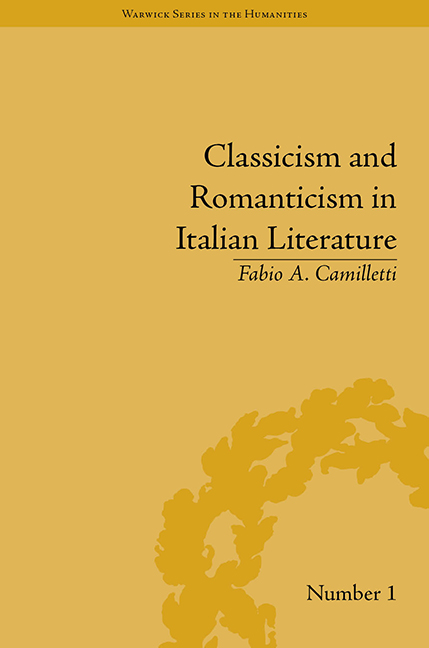Giacomo Leopardi, Discourse of an Italian on Romantic Poetry
Summary
If famous and great men had risen to defend the opinions of our fathers and forefathers and of all ages on the art of writing and expressly on that of poetics that nowadays so many fight against; and if the strength and vastness of genius had encountered an equal vastness and strength of genius; and if profound, sublime thoughts had been matched by sublimity and profundity in thoughts, there would be no need for further discussion, nor, even if there had been, would I have dared to put myself forward. Still, until now, we have been responding to things with words, and to arguments with witty remarks, and to reason with the weight of authority, and the war has been waged between the crowds and the athletes, and between journalists and philosophers, in such a way that it is no marvel if the latter are emboldened and appear to hold the field, and we, at once fearful and ashamed and proud, remaining safe within walls and towers, insult them, however, with the same witty remarks, as though being the last to reply were equal to winning; though we are not allowed even this. But if our cause is just and good, and we robust and brave, and if we trust in the favour of reason and truth, why do we not come out and fight? and why do we act as though we do not understand that which we, instead, understand perfectly but that does not make any sense to us, or convince ourselves without reflection that whatever we do not understand is simply false?
- Type
- Chapter
- Information
- Classicism and Romanticism in Italian LiteratureLeopardi's Discourse on Romantic Poetry, pp. 113 - 174Publisher: Pickering & ChattoFirst published in: 2014



